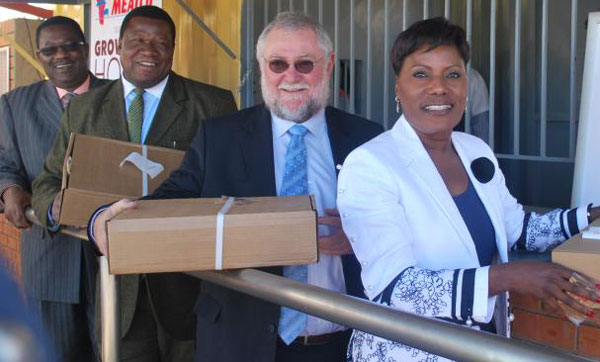
Sheep marketing hijacked by South Africa

By Freeman Ngulu.
09 December 2016 – The Meat Board is seeking urgent intervention from government to replace restrictive measure on the live exportation of sheep to South Africa as well as fast track the processing time for value-added tax (VAT) claims.
Trade and Strategic Marketing at the Meat Board, Goliath Tujendapi told the Economist this week that recommendations made to Cabinet to improve the overall viability and competitiveness of sheep marketing will only be effective if implemented altogether and its success will add financial viability of both the abattoir and producer sectors.
“The sector expects government to intervene and to establish an environment whereby the abattoirs can pay competitive prices to the producers with the benefit of increased local slaughtering as expected with the Growth at Home Strategy,” said Tujendapi, commenting on the Long Term Strategy for the marketing of sheep locally which is part of government’s Growth at Home Strategy to spur local value addition of goods
According to him, if passed, the Meat Board will communicate to their South African counterparts, the Livestock Producers Association to improve on the current 1:1 export ratio of locally slaughtered sheep.
“This ratio ensures that 50% of sheep is slaughtered locally. This is regarded as fair dispensation, in light of abattoirs not being able to equalize export prices to producers. It will thus allow producers to average export income with local slaughter prices,” he said, considering that South Africa is a market more suited for wholesale export of lamb carcasses.
“With no viable option or incentive for local producers or abattoirs to add value to the sheep and sheep products, the Meat Board is negotiating for bone-in lamb exports to the European Union,” he said
Meanwhile, Tujendapi said when exporting bone-in lamb as a value added product instead of a whole carcass, about 90% of the carcass can be exported with an additional premium of between N$3.00-N$5.00 per kg.
“Fat-tail and fat-tail crossbreed sheep of both communal and commercial farmers can be accommodated within the current 1:1 sheep local slaughter. This export ration scheme by the Meat Board helps to prevent further price ‘discrimination,” he added.
Furthermore, Tujendapi said another bone of contention is the current 60% levy on the export of raw wet/dry salted and non-salted skins which will be replaced by the “first right of refusal” scheme also currently being administered by the Meat Board in the case of sheep pickled skins.
“The re-introduction of a compulsory VAT payment obligation on all stakeholders in the livestock and meat industry will also apply to all livestock sales whether private or by auction for all abattoirs including those that export lamb,” he said, adding that this is coupled with the intention to improve the processing of VAT claims which currently take 8-12 weeks until compensation at the Receiver of Revenue.
“We are also considering to add an additional VAT submission cycle of one moth from the two month VAT cycle to allow abattoirs to improve their cash flow position,” Tujendapi concluded.









































